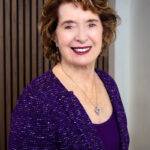
Are You a One-Percenter? September 4, 2019
We constantly hear from the media about the “one-percenters,” those Americans who report the top 1% of income. Sometimes we hear about how good the “one-percenters” are for our economy and job creation and sometimes we hear about the harm they cause to our environment and society.

What does it take to be in the top 1%?
No matter your opinion on which is right, do you want to know if you are a “one-percenter?”
Let’s see how rarified the air is for the “rich” and how much income you need to be in the 1% of income earners.1

NATIONAL AVERAGES
To be in the top 1% nationally in 2015, income needed to be $480,930. But these are national averages. Of course, the “one-percenters” need higher income in higher cost states and metro areas.2
For states, the highest thresholds were in Connecticut ($700,800), New Jersey ($588,575), Massachusetts ($582,774), New York ($550,174), and California ($514,694).
Thresholds above $1 million are in five metro areas:
- Wyoming-Idaho
- Jackson
- Connecticut
- Bridgeport
- Stamford
- Norwalk
- Utah
- Summit Park
- California
- San Jose
- Sunnyvale
- Santa Clara
- Florida
- Naples
- Immokalee
- Marco Island
It takes income above $744,426 to be a one-percenter in New York City and $943,782 in San Francisco.
More Numbers
The average AGI of the top 50% of individual income tax returns was $39,275 and they paid 97.2% of the total individual tax.
References
- The latest statistics from the IRS are for FY 2015 (IRS Report on Individual Income Tax Shares, 2015).
- The source for the state and metro area numbers is the Economic Policy Institute’s article on the New Gilded Age.

